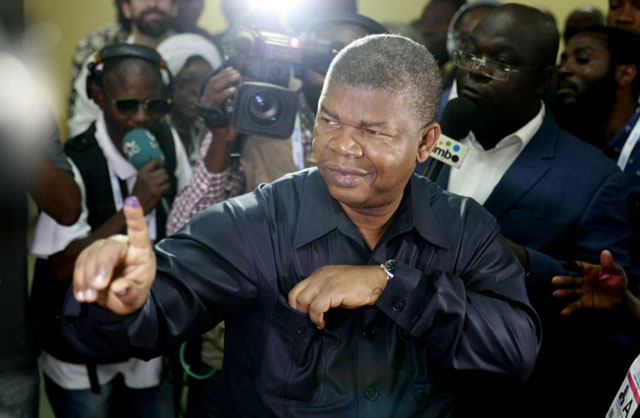
Luanda, Angola | AFP | Jose Eduardo dos Santos’s 38-year reign over Angola finally came to an end Tuesday when his hand-picked successor Joao Lourenco was inaugurated as president at a ceremony in Luanda.
Lourenco read an oath in which he vowed “on my honour to devote myself” to the role of president, as he took power after the ruling MPLA party won last month’s election.
Dos Santos, who was at the ceremony but is reportedly in poor health, surprised many by announcing his retirement earlier this year, saying he would not be a candidate in the election.
The People’s Movement for the Liberation of Angola (MPLA) has governed since Angola’s hard-fought independence from Portugal in 1975, with Dos Santos taking power in 1979.
The party won 61 percent of the vote in August, a sharp drop in support from the previous election in 2012 as the country suffers an economic crisis triggered by the fall in oil prices.
Party loyalist Lourenco, 63, until recently the defence minister, delivered a speech to several thousand people at the ceremony, vowing to tackle the country’s abject poverty and jobs shortage.
“Employment, poverty alleviation, promotion of opportunities and business policies will be implemented,” he said, adding he would govern for “all Angolans”.
Scenes from Angolan presidential inauguration y’day as Lourenco took helm after Dos Santos’s 38-year reign. @AFP https://t.co/HlW3Ey6aYy pic.twitter.com/8MiE9xTCNr
— Ben Sheppard (@MrBenShep) September 27, 2017
– Secretive ruler bows out –
Opposition parties boycotted the inauguration after denouncing “irregularities” in the election, saying the ballot was marred by unfair media coverage and suppression of opposition voters.
UNITA, the main opposition party, this month dropped its threat to refuse to attend parliament over its complaints, while the Consitutional Court dismissed its case alleging election flaws.
Though seldom seen in public, Dos Santos, 75, has been a looming presence in daily life for as long as most Angolans can remember, maintaining fierce control throughout its devastating civil war and a short-lived oil boom.
 The Independent Uganda: You get the Truth we Pay the Price
The Independent Uganda: You get the Truth we Pay the Price





